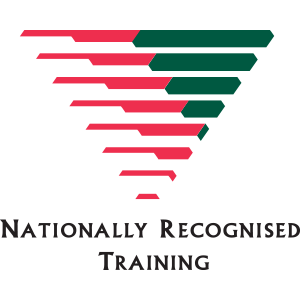Certificate IV in Cyber Security
Sorry, this course is not available for international students.
If you are a local student you may be eligible.
To find a course that's available to international students, please visit the search page:
Overview
12 months full time
1 year
February, April, July, October
February, July
Join the fight against cybercrime
Develop the skills to protect organisations against data breaches and malicious cyber attacks with our Certificate IV in Cyber Security 22603VIC course. With cybercrime on the rise, skilled cyber security professionals are in high demand. Australia’s cyber security industry is expected to face a shortage of 3000 cyber security workers by 2026. During the same time, the number of cyber-attacks in Australia is expected to double over the next five years. Read more.
Gain specialised skills with a cyber security course
You’ll learn to use a range of tools and procedures to mitigate cyber security threats and minimise network vulnerabilities and risks. Taught by industry-based experts, this technician level qualification helps you gain practical skills you can apply to any workplace. This includes securing a networked PC, networking concepts and protocols, Python scripting, managing network security, penetration testing and recognising threats, risks and vulnerabilities to cyber security in an organisation. This course is designed to be flexible and cater to both new students and working professionals looking to upskill.
Begin your cyber security career
Once you complete this course, you can seek employment as an entry-level cybersecurity analyst or cyber security practitioner or cyber security incident response practitioner in a range of commercial enterprises and organisations. Current industry skill shortages have seen experienced and skilled cybersecurity experts promoted from entry-level jobs and quickly advancing in their career.
Career Pathways
Where will the Certificate IV in Cyber Security 22603VIC take me?
Current industry skill shortages have seen experienced and skilled cybersecurity experts promoted from entry-level jobs and quickly advancing in their career.
- Cybersecurity Practitioner
- Cybersecurity Analyst
- Cybersecurity Incident Response Practitioner
Study Pathways
On completion of this qualification you can progress into the Diploma of Information Technology ICT50220.

Course Details
How you will study
Each course has a dedicated learning method that is designed to let you thrive in your studies.
On-campus
Interactive learning in a face-to-face environment. Classes will be held at a Melbourne Polytechnic campus or partner institute. Visit the How You'll Study page for more information.
Class Schedule
The course can be completed in 12 months (two semesters) as full time. The classes are offered during the day.
Assessment Methods
Units are assessed in a variety of ways including practical demonstrations, observations, written assessments, presentations and practical projects.
Units of Study
The hours displayed are nominal, actual classroom hours delivered may differ. Please contact us for the latest student contact hours information.
| Code | Subject | Type | Hours |
| BSBINS401 | Analyse and present research information | Core | 40 |
| BSBWHS309 | Contribute effectively to WHS communication and consultation processes | Core | 30 |
| ICTCLD401 | Configure cloud services | Elective | 60 |
| ICTICT443 | Work collaboratively in the ICT industry | Core | 30 |
| ICTPRG435 | Write scripts for software applications | Elective | 40 |
| VU23213 | Utilise basic network concepts and protocols required in cyber security | Core | 80 |
| VU23215 | Test concepts and procedures for cyber security | Core | 60 |
| VU23217 | Recognise the need for cyber security in an organisation | Core | 60 |
| VU23218 | Implement network security infrastructure for an organisation | Elective | 80 |
| VU23220 | Develop and carry out a cyber security industry project | Core | 100 |
| VU23221 | Evaluate and test an incident response plan for an enterprise | Elective | 40 |
| VU23222 | Expose website security vulnerabilities | Elective | 40 |
| VU23223 | Apply cyber security legislation, privacy and ethical practices | Core | 30 |
| VU23224 | Identify the implications of cloud based security systems | Elective | 40 |
| VU23225 | Investigate Windows security features | Elective | 40 |
| VU23226 | Test concepts and procedures for cyber exploitation | Elective | 60 |
Fees & Costs
| Free TAFE | Concession | Government subsidised fee | Non-subsidised fee | |
|---|---|---|---|---|
| Tuition fee | $0 | $950 | $4750 | $12150 |
| Maximum annual amenities | $260 | $180 | $260 | $260 |
| Total payable | $260 | $1130 | $5010 | $12410 |
The student tuition fees as published are subject to change given individual circumstances at enrolment.
Displayed course fees are indicative only. There are many variables that impact the total amount of your full course costs including qualification for government subsidies, concessions or recognition of prior learning. Tuition fees do not include the cost of student amenities or material costs.
This training is delivered with Victorian and Commonwealth Government funding. Contact us to find out if you’re eligible for a Government subsidy.
Melbourne Polytechnic offers a range of payment options to help you pay your tuition fees, so you can get on with your studies.
Fees displayed are effective for new applications received on or after 1st of November. Tuition fees do not include textbooks, course materials or overseas student health insurance and visa fees.
After initial deposit, international students are able to pay tuition fees in installments, four times per year.
For more detailed information please read the International Student Fees.
Fees explained
The State Government’s Free TAFE for Priority Courses initiative covers the cost of tuition (excluding Amenities Fees and Materials Fees) for students who are eligible for government subsidised training and enrol into one of the Priority listed course.
Free TAFE is available to eligible students for one course enrolment in a lifetime.
Free TAFE places are limited. Please call 1300 635 276 and we can advise you whether Free TAFE places are still available.
Free TAFE for Priority Courses initiative covers the cost of tuition fees for students who are eligible. Materials and amenities may still apply.
The Free TAFE for Priority Courses initiative will pay your tuition fees for only one course. Once you have commenced in a tuition-free priority course, you are not eligible for further tuition-free places again, even if you do not finish your first tuition-free priority course.
The fees for those ineligible for a government-funded enrolment.
The cost of tuition for those eligible for government funding.
Concession fees are charged at 20 per cent of the standard fees for enrolments in Skill Sets and Certificate I to IV courses. To be eligible students must meet Skills First eligibility criteria and present a valid:
- Commonwealth Health Care card, or
- Pensioner Concession card, or
- Any dependent spouse or dependent child of one of the above cardholders, or
- Veterans Gold card.
The following groups are eligible for concession fees from Skill Sets to Advanced Diploma level:
- Aboriginal and Torres Strait Islander students
- Asylum Seekers and victims of human trafficking
Additional expenses
The Student Services and Amenities Fee is charged at fifty cents (50 cents) per student contact hour and is capped over a twelve (12) month period, effective from the enrolment date, to:
- $260 for full fee-paying students; and
- $180 for concession-paying students studying Certificate I, II, III, or IV.
Amenities fees are used to improve non-academic services including libraries, counselling services, student support, and recreational activities.
- Whiteboard and markers
- Computers
- Data Projectors
- Networking equipment including routers and switches
- Cyber Security software (e.g. Kali Linux, firewalls, security tools)
- Scripting software (e.g. Python)
- Server software (e.g. Windows Server 2016 or Windows Server 2019)
- Virtualisation software (e.g. VirtualBox or VMware)
- Microsoft Office software (e.g. Word, Excel, PowerPoint)
- Peripheral devices that can be connected to a Grove Pi (e.g. monitors, keyboards)
- Learner guides for all units of competency
- Assessment guides for all units of competency
- PowerPoints and videos
- Online resources and supporting documentation
- All resources above are through MP’s Learning Management System (Moodle)
Information Technology Courses at Melbourne Polytechnic
Learn future-focused technological and professional skills with the Master of Information Technology at Melbourne Polytechnic
Requirements
Attending an Information Session is a mandatory requirement for this course
This direct entry course is open to post-Year 11 students and/or mature aged applicants. It is possible to undertake this course if it is deemed that the applicant has had sufficient relevant vocational experience to enable them to cope with the course. It is recommended that applicants have some previous IT experience.
Successful completion of the Certificate III in Information Technology ICT30120 is a requirement to undertake the Certificate IV in Cyber Security under the FREE TAFE for Priority Courses initiative.
Hardware and operating system requirements
The minimum hardware and operating system requirements to satisfactorily complete all the units from the course are as follows:
- Multicore 64-bit CPU (minimum 2 cores) with virtualisation support enabled
- 32GB RAM is the recommended amount of physical memory installed
- At least 1TB of Solid-State Disk (SSD) is highly recommended.
- Windows 11 Pro or Enterprise or Education 64-bit operating system
IMPORTANT NOTE: All of our teaching resources are based on Windows and software that runs on a Windows 11 or 10 Pro or Enterprise or Education operating system.
Academic: Australian Year 11 equivalency.English: Academic IELTS 5.5 overall with no individual band below 5.0, or equivalency.
Next Steps
The first step to enrolling is completing the application short form from the Apply Now page.
After you complete that form we will send you an email with a link to an application form webpage. If you don’t receive the email, check your spam and junk folders.
Complete the application form on the application form webpage.
You will be required to complete an online literacy and numeracy assessment.
Once you are ready to enrol, you will be invited to attend an enrolment appointment over the phone or on campus.
For certificate-level courses, you can pay by weekly or fortnightly direct debit using our Tuition Payment Plan. Read more about Tuition Payment Plans here.
If you need assistance with your application and the next steps, you can contact one of our Education and Course Advisors on 1300 635 276 or follow a step-by-step guide to enrolling for vocational education local students.
When we receive your application, the International Office will be in contact with you shortly to discuss your application and provide you additional instructions.
If you'd like to speak to one of our International Office staff directly, call 1300 635 276
Recognising Organisations

Nationally Recognised Training This course is government accredited and has national recognition.
Local student means; you are an Australian citizen or permanent resident, a New Zealand citizen or a permanent humanitarian visa holder.